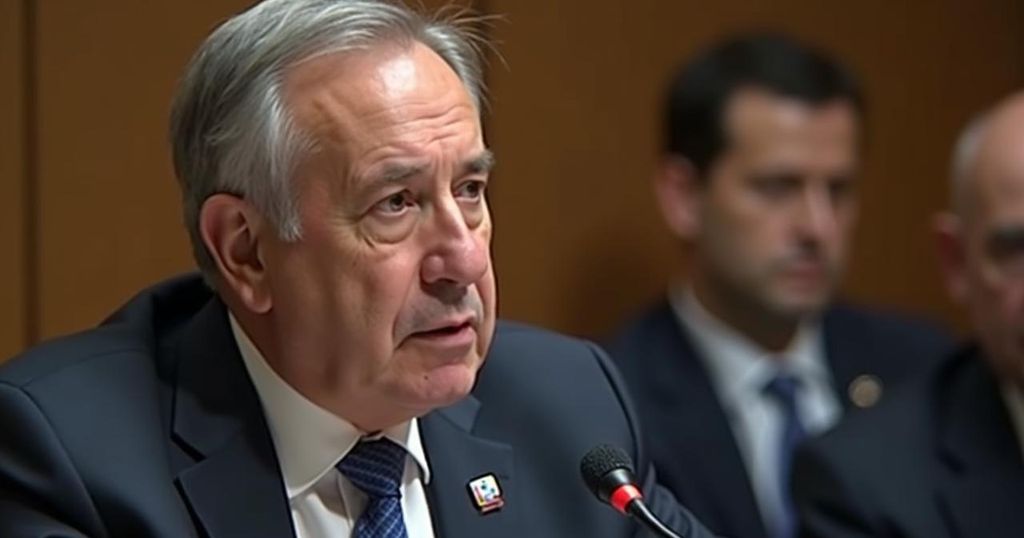David Cameron proposed that the UK should consider imposing sanctions on Israeli ministers Bezalel Smotrich and Itamar Ben-Gvir, describing them as extremists whose actions contradict international law. Although plans were in the works, they were shelved due to political considerations during the election. Current Foreign Secretary David Lammy also criticized the ministers’ remarks as unacceptable, while concerns over potential political fallout and U.S. opposition contributed to the decision to delay sanctions.
David Cameron, former UK Prime Minister, has recently stressed the need for the United Kingdom to contemplate sanctions against two specific Israeli ministers, Bezalel Smotrich and Itamar Ben-Gvir. Cameron, who served as the Conservative Foreign Secretary, articulated his concerns during an interview with the BBC’s Today program, stating that he had been preparing to impose sanctions on these individuals prior to the recent election. He characterized both ministers as extremist figures, suggesting that it is imperative to communicate to Israeli Prime Minister Benjamin Netanyahu that the current actions being taken are unacceptable under international law. Cameron further pointed to the inflammatory rhetoric of Smotrich and Ben-Gvir, highlighting their encouragement of extreme settlers in the West Bank and harsh measures against Palestinians in Gaza. He collectively described their stances as detrimental to peace efforts. While plans for sanctions were reportedly under development, they were ultimately shelved due to concerns that such actions might exacerbate political tensions during the electoral campaign. Current UK Foreign Secretary David Lammy echoed Cameron’s sentiments, condemning the remarks made by the Israeli ministers as “entirely unacceptable.” Internal discussions within the UK Foreign Office had been progressing regarding a travel ban and asset freeze for Smotrich and Ben-Gvir, but these plans were paused amidst fears of provoking unrest in polarized constituencies. Notably, the United States opposed the imposition of sanctions at the time, which influenced the UK’s decision-making process. Moreover, experts have indicated that sanctioning ministers from an allied country like Israel would be a significant departure from precedent, with concerns raised over the feasibility and resources required to implement such sanctions. Cameron articulated that while support for Israel’s self-defense is necessary, it must come with conditions to uphold humanitarian principles, urging the need for humanitarian access in Gaza and respect for international law.
The conversation surrounding potential sanctions against Israeli ministers stems from ongoing geopolitical tensions in the Middle East, particularly related to Israel’s actions in Gaza and the West Bank. The UK government’s approach to Israel traditionally aligns with United States and European policies, seeking to maintain a balance between supporting Israel’s right to self-defense while advocating for Palestinian rights and humanitarian aid. The discussion of sanctions reflects larger concerns regarding extreme rhetoric from certain Israeli political leaders and its implications for international law and peace initiatives.
Ultimately, David Cameron’s push for sanctions against Israeli ministers Bezalel Smotrich and Itamar Ben-Gvir highlights a critical moment in UK foreign policy, where the need to uphold international law and advocate for humanitarian principles are weighed against the complexities of geopolitical alliances. Cameron’s perspective encourages a reevaluation of the UK’s approach to foreign relations, particularly in addressing the ethical dimensions of military support alongside political accountability.
Original Source: www.bbc.com







